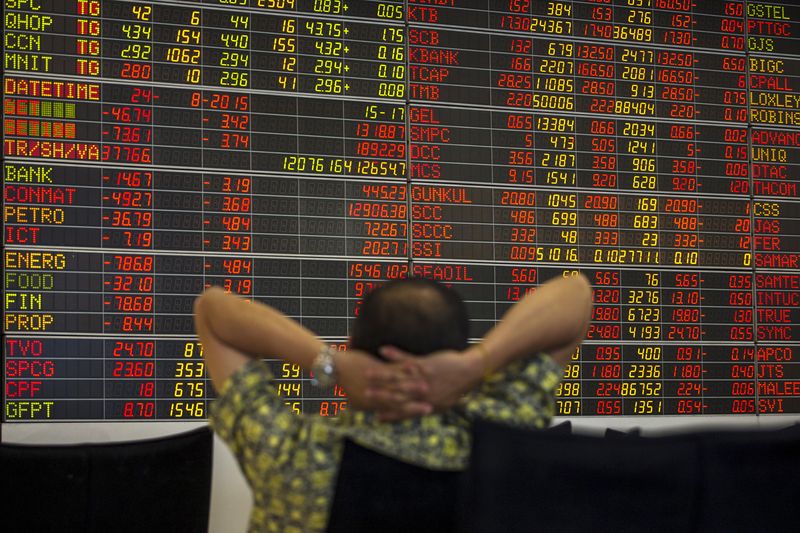By Gaurav Dogra
(Reuters) - Foreign net monthly inflows into Asian equities hit a two-year high in November on hopes that the U.S. Federal Reserve could cut the pace of its interest rate hikes.
Expectations that China would gradually loosen its zero-COVID policy and open up its economy also lifted sentiment.
Data from stock exchanges in Taiwan, India, the Philippines, Vietnam, Thailand, Indonesia and South Korea showed foreigners bought equities worth a net $15.18 billion in November, the most since November 2020.
Monthly foreign investment flows Asian equities https://fingfx.thomsonreuters.com/gfx/mkt/byvrljyrxve/Monthly%20foreign%20investment%20flows%20Asian%20equities.jpg
The minutes from the Federal Reserve's recent policy meeting showed that most policymakers saw the need for a slowdown in rate hikes to counter the economic downtrend and maintain financial stability.
The MSCI Asia Pacific index surged 14.8% last month, its biggest monthly gain in about 24 years, after being hit by aggressive rate hikes by the Federal Reserve earlier this year.
Taiwanese equities attracted $6.06 billion in foreign inflows last month, the biggest amount since 2008, while India and South Korea received $4.43 billion and $3.04 billion, respectively.
Meanwhile, Thai and Vietnamese equities drew $822 million and $683 million in net buying. Foreign investors also had small net purchases in the Philippines and Indonesia last month.
Analysts are also optimistic about flows into emerging Asian markets as the dollar has dropped sharply in recent weeks.

The dollar index touched a more than 5-month low this week on bets that the Federal Reserve would dial down the pace of its interest rate hikes after four consecutive 75-basis-point increases.
"The US dollar index remains locked in a downward bias, which could continue to provide a supportive environment for foreign inflows into Asian equities towards year-end," said Yeap Jun Rong, a market strategist at IG.
